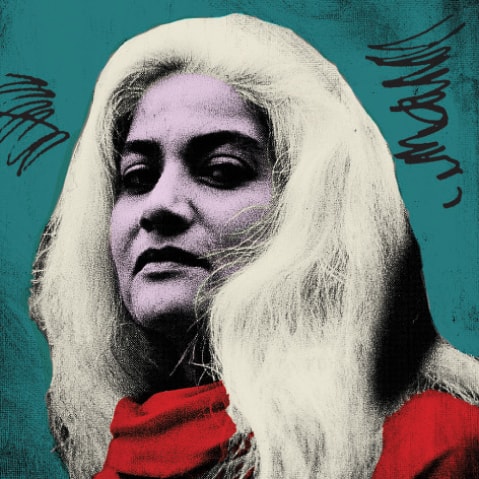
It is estimated that about 130 million babies are born in a year around the world. Each one will be given a carefully considered name. A name that will indicate their gender, family, culture and possibly religion. It will specify their parents’ aspirations with the assumption that as the child grows he or she will develop a personality and values reflected in their given name. The importance given to naming a newborn can be gauged by the elaborate naming ceremonies across the world. Names are decided in a dizzying array of systems: Tasmiya of Muslims, the Baptism of Christians, Namakaram of Hindus, Chaathi of Parsis and The Chinese Moon-yut or red egg and ginger party.
Philosophers have debated — with no clear conclusion — whether a name is merely an objective title or a description of the person. However, in practice, names are imbued with all manner of qualities. Some believe a name determines the destiny of a person. Numerology has been applied to names from at least as far back as 9BC in Babylon to discover the hidden influences or forces behind a name. The first and last name together can have good or bad vibrations, and people have been known to change their names in an attempt to change their destiny or nature.
The current administrative needs, with standardised forms to fill, force people to stick to one official set of names. However, in the past, names were fluid. Arab names would change with the birth of a child with addition of Abu (father) or Umme (mother). Similarly children would be known as bin or binte — son or daughter of. Arab names may have five parts: ism (given name), kunya (honourific name, such as Abu or Umme), nasab (ancestral link), laqab (epithet) and nisba (surname). Imam Abu Hanifah, the most widely followed Islamic jurist, was born Nu`man bin Thabit. He took the kunya of his daughter, Hanifah, instead of his son, after she solved a complex question he could not.
In South Asia, many names refer to the city of origin, such as Amrohi, Dehlavi or Shirazi, or a trade, for example, Bandookwala, Contractor, Mevawala.
Native Americans have secret sacred names that only the individual and the medicine man know, as a secret core identity to help them recover from a traumatic experience.
In traditional Chinese culture, similar to Native American culture, a man would change names from birth to adulthood: A “milk name” at birth, a “book name” on entering school, a “courtesy name” when 20, a “fancy name” given by a friend or chosen by himself. A similar unfolding of names is also common in Native American tribes. Chinese women, on the other hand, either stayed nameless, known only by their position, or had names only known to close family.
Native Americans have secret, sacred names that only the individual and the medicine man know, as a secret core identity to help them recover from a traumatic experience. African names often refer to events at the time of birth including whole sentences such as “joy has come home” or “born during troubled times.” The child of an unplanned pregnancy was named Melevevio, meaning “not necessary.” To ward off evil spirits, a negative name, such as “born on a rubbish heap,” may be used and changed once the child has grown.
Mughal emperors took on names on succession that were an announcement of how they intended to rule — Akbar, Jahangir, Shah Jahan and Alamgir. Catholic nuns, priests and the Pope take on names of saints and other religious figures to announce giving up their individual identity to serve God’s greater purpose. European royalty had a limited number of approved names, encouraging epithets such as Ivan the Terrible, Ethelred the Unready or Richard the Lionheart.
Hypocorisms include pet names or calling names which can be terms of endearment, such as Dulhan Mumani, Gori Phuppo or Achi Aapa. Epithets are freely used by the underworld: Kala Naag, Rehman Dakait, Commando, Darbari, Tijori or Kaan Kata. Superheroes, wrestlers and martial artists are also known by epithets: Batman, the Hulk, The Undertaker or the Dragon.
The need to assimilate when crossing cultures was often achieved by localising names. German and Jewish post-WWII refugees in the US anglicised their names. In Zia’s era, many newborns of the Christian community gave Muslim-sounding names, such as Yusuf instead of Joseph. Black Americans, on the other hand, are returning to names referring to their pre-slavery identities, or create new identities by subverting names such as that of the rap artist Will I Am.
Places, machinery and objects may also be given names such as the Big Apple for New York, a military gun called Big Bertha, constellations, hurricanes and boats. Mona Lisa was named many years later by Vasari, not the artist Leonardo Da Vinci. Hazrat Ali’s powerful sword was called Zulfiqar.
A name has great power whether protecting one’s own name to preserve one’s reputation, or the lucrative naming rights of commercial businesses. One of the first things empires did was to rename places they conquered to subordinate and undermine the authority and ownership of the vanquished. After countries gained their independence they gradually reverted to indigenous names.
One can question Romeo’s claim: “What’s in a name? That which we call a rose/ By any other name would smell as sweet.”
Durriya Kazi is a Karachi-based artist and heads the department of visual studies at the University of Karachi durriyakazi1918@gmail.com
Published in Dawn, EOS, August 12th, 2018














































